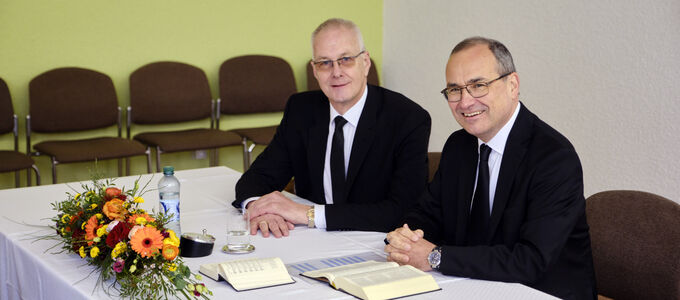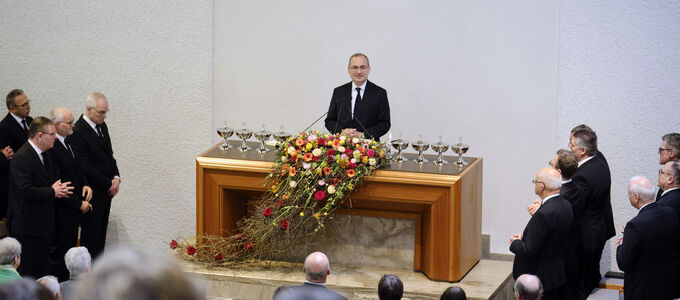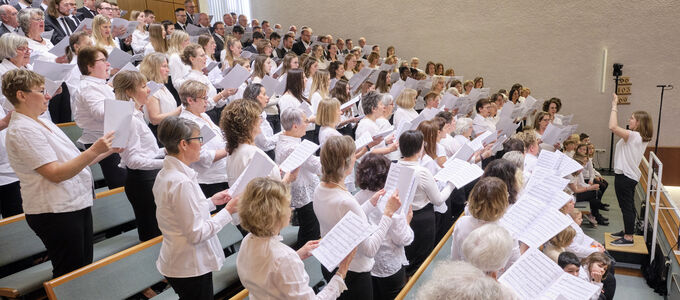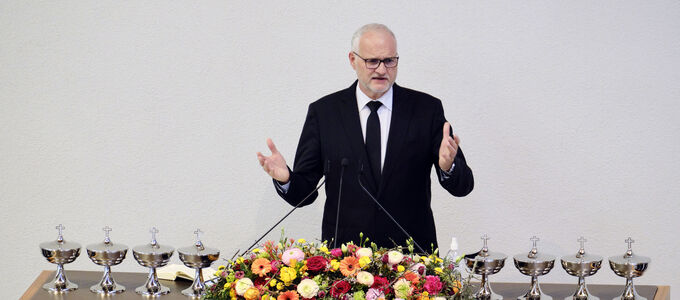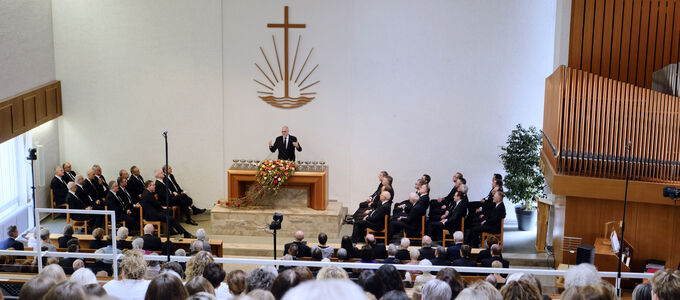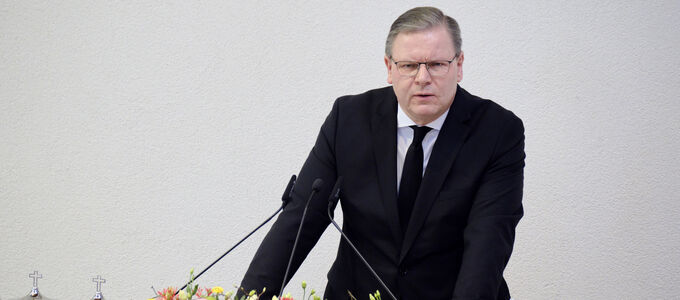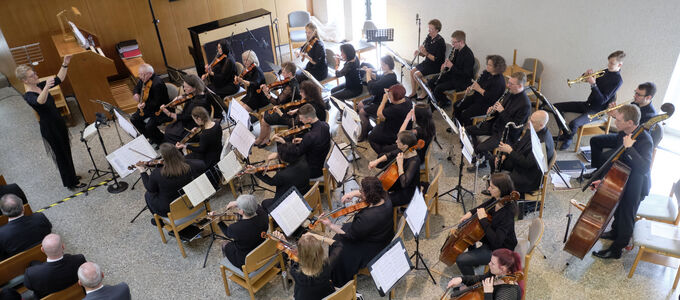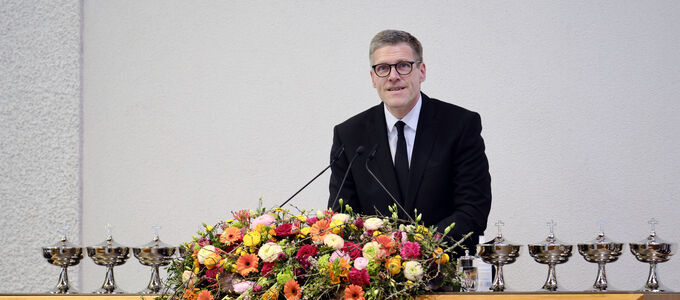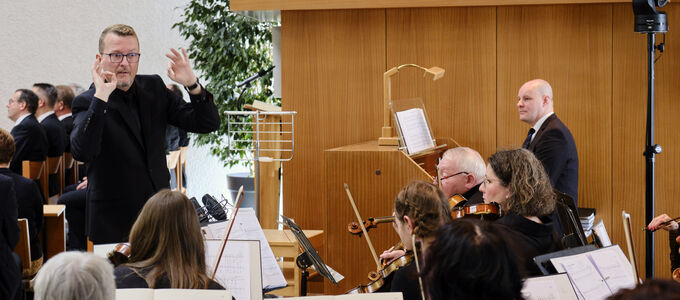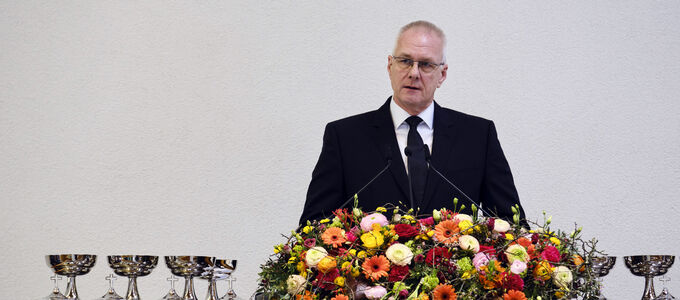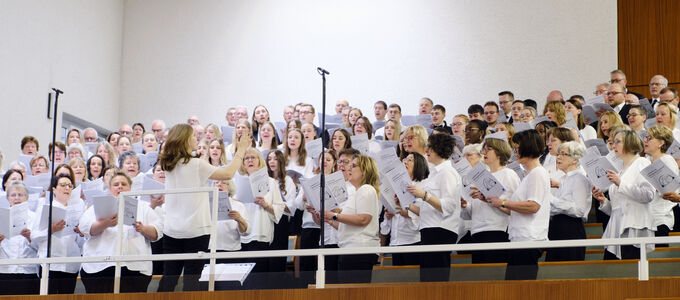Spreading the word
Jesus invited Thomas to touch His wounds. Others were not allowed to touch the risen Lord. Some recognised the Lord immediately, while others only realised who He was after He had said or done something specific. The Chief Apostle explained the discrepancies in the account of the resurrection.
“Christ is risen!” This is the joyful message that Chief Apostle Jean-Luc Schneider conveyed to the brothers and sisters during the Easter service on 31 March in Herrenberg, Germany. He based his sermon on Mark 16: 9–10: “Now when He rose early on the first day of the week, He appeared first to Mary Magdalene, out of whom He had cast seven demons. She went and told those who had been with Him, as they mourned and wept.”
The Bible only relates what is most important
When you read the accounts in the Bible, you get a little frustrated, the Chief Apostle said. “Being human we would like to know how things happened? But the Bible says nothing about it at all.” Why? “Because the Holy Spirit does not answer all our questions. The Holy Spirit only tells us what we must do to attain salvation.” He went on to explain that the resurrection bears witness to the fact that
- what Christ said about God is the truth. God really is the way Jesus portrayed Him. God is truly the God of love, grace, and mercy, the God who loves people despite their sin. And to please Him, you must love God and your neighbour.
- Christ lives. “He continues to offer salvation, grace, and blessing. He is still at work. Neither human beings nor evil can stop Him.”
- salvation is not that we are saved from suffering and death. Rather, “the salvation granted us by God is eternal life. It is about fellowship with God and human beings in His kingdom in heaven.”
- in order to obtain salvation, we must not only respect the law and the regulations, but we must also walk the path that Jesus Christ walked. That means trusting God, even if it looks like He has forsaken us.
- God triumphs over evil and death. “With Jesus, you can overcome evil and make neighbourly love stronger in your heart than selfishness, than self-centredness.”
What the contradictions mean
When you read the accounts of the resurrection in the Holy Scriptures, you realise, “That doesn’t go together at all.” Sometimes the risen Christ can be touched, other times He says not to touch Him. Some recognise Him immediately, others only after a while. One possible explanation is that the reports were transmitted orally and only written down many years later by various authors. And everyone naturally wrote what they had heard and what was important for their readers. Behind all of this, however, are messages from the Holy Spirit.
- Jesus could not be touched: “The Holy Spirit wants to tell us that the risen Jesus Christ had a resurrection body that was no longer the earthly body. The resurrection body is a perfect body, created by God,” the Chief Apostle said. “The resurrection was actually the beginning of the new creation.”
- Jesus invited Thomas to touch Him: “It was to demonstrate that He was still the same as He had been when the disciples knew Him: the one who loved them, the one who had washed their feet. I am still the one who loves you, who is close to you, and who serves you: I continue to exercise the ministry of salvation upon humans.”
- Every encounter with Jesus was initiated by Him: “Every encounter with Jesus Christ is grace, something totally undeserved and something that we cannot order.”
- Mary recognised Jesus by His voice. The two disciples on their way to Emmaus recognised Him when He broke the bread. “How can we meet Him?” the Chief Apostle asked. “When we hear His word we realise: this is my Saviour speaking to me.” And: “In Holy Communion we can have a very intimate encounter and fellowship with the Lord Jesus Christ.”
- Jesus appeared to the disciples when they were together: “We can meet the Lord Jesus within the community of believers.”
When Jesus appeared to people, He usually had a mission for them: “Every time He come to us, He gives us a mission,” the Chief Apostle explained. We are to proclaim the gospel. “Let us continue to let others see that Jesus Christ lives. He did not die. We can pass on this message and tell people even today: ‘Christ lives. What He said is the truth.’ Let us continue to carry this message into the world in word and deed.”


